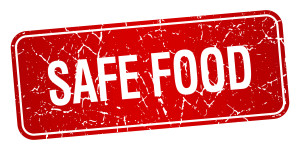New food prevention and accreditation standards released
Throughout the year, we’ve summarized the initiatives and progress of the Food Safety Modernization Act (FSMA). Last month, a significant milestone was achieved when the FDA published three rules that establish enforceable standards and created accreditation auditors aimed at food safety and outbreak prevention for produce farmers and food importers. The new rules outlined below will impact your business processes in a variety or ways.
The Produce Safety Rule establishes science-based standards for growing, harvesting, packing, and holding produce that are designed to work effectively for food safety across the wide diversity of produce farms. The standards in the final rule include requirements for water quality, employee health and hygiene, wild and domesticated animals, biological soil amendments of animal origin (such as compost and manure), and equipment, tools, and buildings. When followed, the standards are designed to help minimize the risk of serious illness or death from consumption of contaminated produce. Public comments and input received during hundreds of farm visits, meetings and listening sessions have shaped the rule into one that will reduce the risk of harmful contamination while also allowing appropriate flexibility for farmers and producers. (Source: FDA News Release Nov. 2015)
The Foreign Supplier Verification Programs rule requires food importers to verify that foreign suppliers are producing food in a manner that meets U.S. safety standards and that they are achieving the same level of food safety as domestic farms and food facilities. The final rule ensures that importers conduct verification activities (such as audits of a supplier’s facility, sampling and testing of food, or a review of the supplier’s relevant food safety records) based on risks linked to the imported food and the performance of the foreign supplier. (Source: FDA News Release Nov. 2015)
The Accredited Third-Party Certifications rule establishes a program for the accreditation of third-party certification bodies (auditors) to conduct food safety audits and to certify that foreign food facilities and food produced by such facilities meet applicable FDA food safety requirements. To prevent potentially harmful food from reaching U.S. consumers, the FDA can require in specific circumstances that a food offered for import be accompanied by a certification from an accredited third-party certification body. (Source: FDA News Release Nov. 2015)
How will this impact your ERP and current process?
These new standards define specific data that must be captured throughout the growing, processing, and distribution supply chain. Additional fields will need to be added to support the collection of new data along with user training to record the values with procedural instructions documented. Business Insights tools like dashboards, alerts, and events workflow will need to be created to identify, report, and resolve any variances, exceptions, and non-conformance in real-time. For Importers, it is probable that current nutritional labels and safe handling instructions must be updated, too. Additional fields specifically for vendor quality, history, and performance will be helpful when sourcing for ingredients and food products to avoid previously identified discrepancies.
With this announcement, the FDA has now finalized five of its original seven initiatives, building on other preventative controls communicated in September.
Watch Demo Videos
Watch our playlist of Sage X3 demos for Food and Beverage Manufacturers


